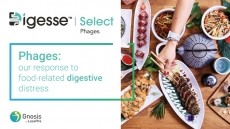Zoe staff cuts reflect industry-wide customer churn challenge

Personalized nutrition (PN) thought-leader Mariette Abrahams noted the update reflects the challenge PN firms face in retaining customers at a sustainable price-point - a challenge further exacerbated by the economic crisis.
The consumer data focused start-up launched in 2017, opening its membership only two years ago and gaining a name for itself as a science-backed holistic health support service, utilizing stool testing kits, CGMs, daily diet diaries and lifestyle questionnaires to provide gut health focused nutrition advice.
It sells gut microbiome testing kits for £300 and a monthly subscription to a diet advice and tracking app and was reportedly the UK’s fastest growing healthtech by headcount in 2023 (Sifted).
But Jonathan Wolf, co-founder and CEO at Zoe, posted on his LinkedIn page on April 11 informing that after experiencing huge growth in 2023 and inflated growth forecasts, the team was over-expanded and costs need to be cut.
“We’ve seen extraordinary growth since launching ZOE membership in the UK two years ago,” he stated. “We spent the last year desperately trying to catch up with demand, as we welcomed 100,000 new members. Unfortunately, it’s now clear that in doing this, we over-expanded our team over the last six months.
"We now have to make difficult decisions to reduce our costs by around 20%, which will impact some of our team. I take full responsibility for this.”
He added that start-up success is “often two steps forward and one step back” and he is confident in the company's outlook.
Commenting on Wolf’s post, several customers provided their advice on how the company could reduce customer churn rate, with high pricing for long-term users being a key concern.
One stated: “My renewal came around and I was offered £160 for another 4 months of access to the App. I declined as all I was using the app for was recipes and logging my food still. I thought I'd learned enough so didn't need any of the lesson features anymore.”
Consumers constantly weighing up costs
Commenting on the update, Abrahams, founder of the personalized nutrition insights firm Qina, noted consumers are constantly weighing up the price versus value of all PN solutions.
Mariette Abrahams' keys to success:
- Cost - This is a major barrier, especially during a cost of living crisis. Whilst there is no lack of solutions on the market, consumers are not willing to pay a high cost to access knowledge and insights.
- Ease of use - The solution needs to be easy to understand, easy to use and the benefits should be clear
- Accessibility - It should also be easy to access personalized advice, consumers should not have to answer extensive surveys and complete a million tasks before receiving feedback
- Efficacy - Consumers are interested in improving their health based on their goals and preferences and that feedback should be rooted in the science
- Behaviour change - Achieving health is not just about the data, but about supporting consumers along their health journey to change their behaviour. If the recommendations are not practical and relevant, change will not happen.
“While Zoe provides great value at the start, this does come at a high price point, especially for those on smaller budgets. After learning what to do and how to adopt healthier behaviours, the value drops,” said Abrahams. “If your business model means constantly acquiring new customers, without understanding how to activate or re-engaging lapsed users, it will be a struggle which we have seen in the industry over the years.”
She added: "I believe the update is a reflection of the general market conditions and the challenge of growing beyond the early-adopters."
US-based PN firm Arivale, launched in 2015, also had to close after struggling to find the right sustainable business model in a relatively new industry.
And this cost concern has become all the more important in the last year due to inflation of all other living costs, impacting disposable income and quality of life, noted Abrahams.
“Consumers have a value in mind for what they are willing to spend on their health, If a solution is priced too high, the consumer expectation is also very high in terms of scientific quality and level of personalization.
"If it is priced too low, it can be perceived to be gimmicky and un-personalized. Consumers want both, a high level of personalization at a low cost, and therein lies the challenge. “
Providing an indication of survival rate across the PN market, Qina data reveals the current survival rate is around 3.5 - 5.5 years globally.
However, she thinks the future for Zoe ought to be bright.
"Zoe is one of the market leaders making nutrition science understandable to the general public. They have managed to engage consumers with educational resources, science and expert insights, which has meant that they have a few competitors.
"Things are a bit tougher now, however with the amount of data and insights Zoe has collected over the years, I believe that this could open up new business models and opportunities."











